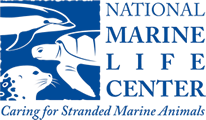Oil Spill in the Gulf of Mexico

I’ve avoided blogging about the oil spill in the Gulf in part because I’ve felt it’s not my story to tell. I’ve been doing my part to keep informed, share good information across Twitter and Facebook, and put my name on a NOAA list of potential trained responders available if needed to relieve wildlife response personnel on scene. As oil continues to gush, however, and more and more questions arise, our local community is looking to the National Marine Life Center for information. In that light, then, I would like to share with you a wildlife update and links to good, solid information.
As of May 21st, the Oiled Wildlife Care Network reports 3 live externally oiled sea turtles, 10 live externally unoiled sea turtles, and 173 dead externally unoiled sea turtles. Additionally, they report 18 dead externally unoiled dolphins.

As of May 23rd, the International Bird Rescue Research Center reports 41 oiled birds were captured and brought to care centers in Louisiana, Alabama, Mississippi, and Florida. Of these 41 oiled birds, 11 were released, 10 died, and 20 remain in rehabilitation. Additionally, they report 316 dead birds, both oiled and externally unoiled.
As I’m writing this, I’m coming to realize I was wrong in thinking the oil spill is not my story to tell. In our own ways, each of us is impacted by the spill. As users of oil and its products, each of us is responsible for the need to drill. As consumers of seafood, as tourists, as coastal residents each of us will face the consequences of the spill now and for years into the future.
So what can each of us do? Stay informed. Remember that you vote with your wallet every time you spend money, and do so wisely and thoughtfully. If you are in a position to do so, volunteer. Donate to groups helping oiled wildlife. Spread the word and share good, accurate information.
First, here are the official phone numbers for the Oil Spill.
~ REPORT OILED/INJURED WILDLIFE (866) 557-1401
~ OIL ON LAND / BOOM ISSUES (866) 448-5816
~ TECH/SUGGESTIONS (281) 366-5511
~ DAMAGE CLAIMS (800) 440-0858
~ VOLUNTEERING (866) 448-5816
or visit the State-Specific Web sites below.
State specific volunteer opportunities:
~ Louisiana: http://www.volunteerlouisiana.gov/
~ Mississippi: http://www.volunteermississippi.org/1800Vol/OpenIndexAction.do
~ Florida: http://www.volunteerfloridadisaster.org/
~ Alabama: http://www.servealabama.gov/2010/default.aspx
Here are my favorite websites for oil spill information:
~ Oiled Wildlife Care Network Blog – excellent source of information on wildlife response, on the difficulties of determining whether or not an animal is oiled, and on the mechanics of wildlife response within the larger Incident Command System (ICS) structure.
~ International Bird Rescue Research Center Blog – on-the-ground reports of oiled wildlife.
~ Deepwater Horizon Response – official website of the Unified Command.
~ NOAA Office of Response & Restoration, Incident News – includes public advisories and press releases as well as NOAA Situation Updates.
~ U.S. Fish and Wildlife Service Spill Response – additional updates about wildlife response.
~ EPA Response to BP Spill – information from the US Environmental Protection Agency.
This is a great document explaining the plans for marine mammals and sea turtles.
~ Response and Rescue Plans for Marine Mammals and Sea Turtles Impacted by the Spill – by NOAA, US FWS, and the Oiled Wildlife Care Network.
And of course there are a variety of information sources on social networks.
~ Twitter: The official response from the Joint Information Center is @Oil_Spill_2010. There are a lot of other sites springing up and several of the agencies involved are also “Tweeting” about the spill. The National Marine Life Center (@MarineLifeCtr) has aggregated some of our favorites into an oilspill list that is open for others to follow.
~ Facebook: The official response from the Joint Information Center is at:
http://www.facebook.com/DeepwaterHorizonResponse?ref=ts


